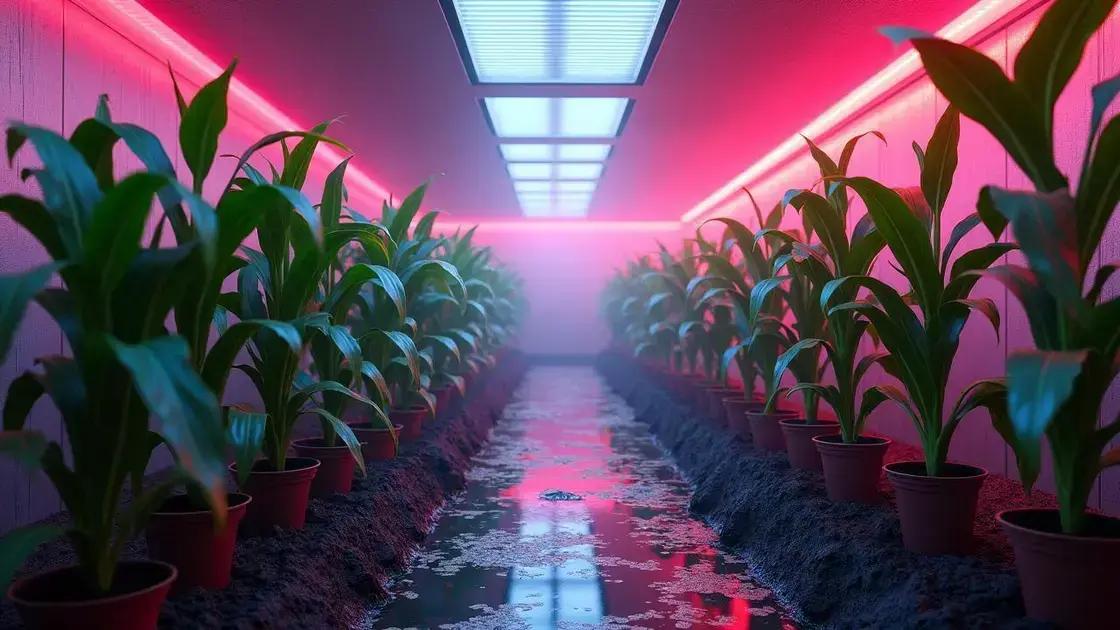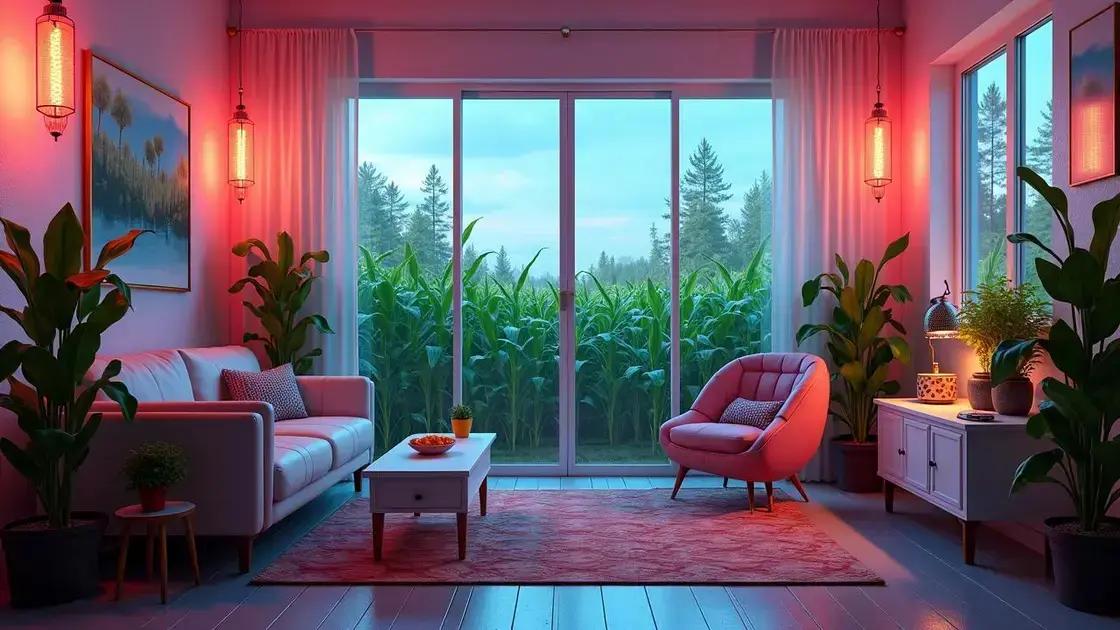How to Care for Corn Plant Indoors: 7 Expert Tips for Thriving Growth
How to care for corn plant indoors is a question many plant enthusiasts ask. These unique houseplants can thrive beautifully with the right attention and care. Whether you’re a novice or an experienced gardener, understanding their requirements for light, water, and nutrients is crucial for ensuring their vibrant growth. Let’s dive into what makes these plants flourish in your home.
Table of Contents
ToggleUnderstanding the ideal light requirements for corn plants
Understanding the ideal light requirements for corn plants is crucial for their healthy growth indoors. Corn plants thrive when they receive the appropriate amount of light, which mimics their natural habitat. Here’s how to ensure your corn plant gets the light it needs.
Types of Light Ideal for Corn Plants
Corn plants appreciate bright, indirect sunlight, which prevents leaf scorch and maintain their lush greenery. Here are the main types of light to consider:
- Natural sunlight: Place your corn plant near a window that receives filtered light, such as one with sheer curtains.
- Grow lights: If natural light is insufficient, consider using full-spectrum LED grow lights to supplement light needs.
Optimal Light Duration
Even though corn plants prefer bright light, it’s equally important to manage the duration. Aim for:
- 12 to 16 hours of light daily.
- 8 to 12 hours of darkness to promote healthy growth cycles.
Signs Your Corn Plant Needs More Light
Monitoring your corn plant will help you determine light adequacy. Look out for:
- Pale or yellowing leaves, indicating insufficient light.
- Leggy growth, suggesting the plant is stretching towards the light source.
Frequent Questions
Can corn plants adapt to low-light conditions?
While corn plants can survive in low-light areas, their growth will be stunted, and they may lose their vibrant color over time.
What if my corn plant is getting too much sunlight?
Excessive direct sunlight can cause leaf burn. If you notice brown tips on the leaves, consider relocating your plant to a spot with less direct exposure.
Conclusion
By understanding the ideal light requirements for corn plants, you’ll ensure they remain healthy and vibrant. For more insights on fostering indoor greenery, check out this exploring indoor gardening techniques.
Watering needs for healthy corn plants indoors

Watering needs for healthy corn plants indoors are crucial to keeping them vibrant and flourishing. Proper hydration ensures that your corn plant remains robust and free from common issues such as wilting or leaf discoloration.
Understanding soil moisture
Poking around in the soil can help you assess the moisture level. Here’s what to consider:
- Check the top inch of soil; if it’s dry to the touch, it’s time to water.
- Use well-draining pots to prevent waterlogging, which can lead to roots rotting.
Optimal watering frequency
The frequency of watering depends on several factors, including temperature and humidity levels:
- In warmer months, aim to water once a week.
- During the winter, reduce watering to every 10-14 days.
Signs of overwatering and underwatering
Recognizing the symptoms of improper watering can save your corn plant:
- Overwatering: Yellowing leaves and root rot.
- Underwatering: Wilting leaves and dry, crispy tips.
Watering techniques for best results
Consider these effective techniques to optimize your corn plant’s hydration:
- Water thoroughly until excess runs out the drainage holes.
- Use room temperature water, as cold water can shock the roots.
Frequent questions
Should I mist my corn plant?
Misting can help increase humidity, but ensure it’s not excessive as this can lead to fungal issues.
Is tap water safe for corn plants?
Most tap water is safe, but letting it sit out for 24 hours allows chlorine to dissipate, benefiting your plant.
For additional tips on enhancing the growth of your indoor garden, check out this exploring indoor gardening techniques.
Effective fertilizing strategies for corn plants
Effective fertilizing strategies for corn plants are essential for promoting healthy growth and vibrant foliage. Proper nutrition boosts your corn plant’s resilience and aesthetic appeal, ensuring it thrives in an indoor environment.
Understanding the nutrient needs of corn plants
Corn plants require a balanced diet of essential nutrients. Here’s what you need to know:
- Nitrogen: Supports lush foliage growth.
- Phosphorus: Encourages root development and flowering.
- Potassium: Enhances overall plant health and stress resistance.
Types of fertilizers for corn plants
Choosing the right fertilizer can make a significant difference. Here are common options:
- Balanced liquid fertilizers: Ideal for regular feeding.
- Slow-release granules: Provide prolonged nutrient delivery.
- Organic options: Such as worm castings or compost for natural nourishment.
Fertilizing schedule for optimal growth
Consistency is key in feeding your corn plants:
- Apply fertilizer every 4-6 weeks during the growing season.
- Cut back to every 8-10 weeks in the winter months.
Signs your corn plant needs fertilization
Look out for these indicators that your corn plant may require additional nutrients:
- Yellowing leaves, particularly the older ones.
- Stunted growth or small new leaves.
Frequent questions
Can I over-fertilize my corn plant?
Yes, over-fertilization can cause salt build-up, leading to root burn. Always follow manufacturer instructions.
What is the best fertilizer ratio for corn plants?
A balanced 10-10-10 NPK (Nitrogen-Phosphorus-Potassium) fertilizer is typically recommended for corn plants indoors.
For further insights on indoor garden fertilization, don’t hesitate to explore this exploring indoor gardening techniques.
In conclusion
Caring for corn plants indoors requires a blend of understanding their light, watering, and fertilizing needs. By implementing the strategies discussed, you’ll nurture a healthy and flourishing corn plant that enhances your indoor space. Remember, proper care ensures your corn plant thrives and becomes a stunning focal point in your home. For more valuable tips on enhancing your indoor garden, check out these tips on enhancing your indoor garden.

